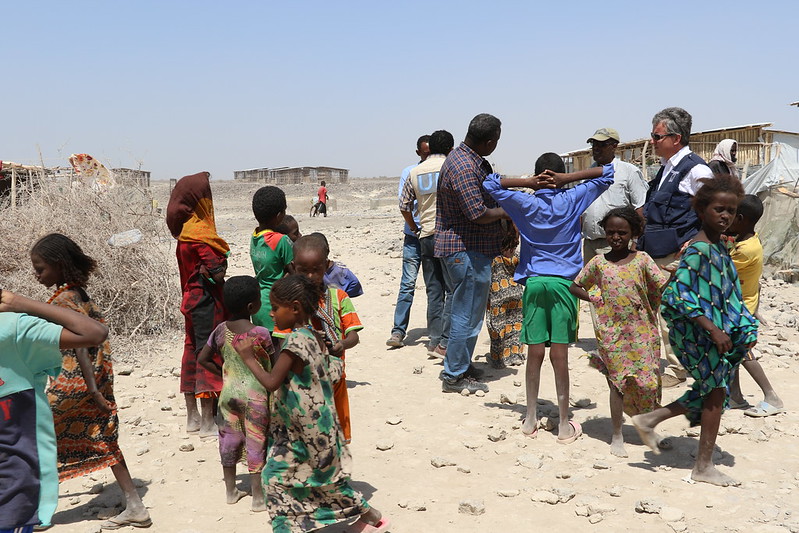According to the IDMC, conflict and natural disasters remain the main drivers of internal displacement in sub-Saharan Africa. In 2023, these factors caused the displacement of 13.5 and 6 million people respectively in the region.
In 2023, sub-Saharan Africa recorded a peak in internal displacements, totalling 19.5 million people, or 42% of the world total, compared with 16.5 million in 2022. These are the findings of a report by the Internal Displacement Monitoring Centre (IDMC) published on Tuesday 14 May 2024.
According to the report, armed conflict and violence continue to be the main drivers of this massive displacement, with 13.5 million people having been displaced. Sudan, plagued by political and social unrest, accounts for 45% of this total, or more than 6 million people, while the Democratic Republic of Congo (DRC) recorded the second highest figure (more than 3.7 million people). These two nations are the scene of violent conflicts fuelled by persistent political and ethnic tensions.
At the same time, other countries such as Somalia, Ethiopia and Burkina Faso are also facing massive displacement due to protracted conflicts.
In addition to conflict, natural disasters have also had a “significant” impact on the region. Devastating floods in the Horn of Africa, following persistent drought, have resulted in 6 million people being displaced, while cyclone Freddy was one of the most devastating storms to hit the region, particularly in Malawi and Mozambique.
By the end of 2023, the total number of internally displaced people in sub-Saharan Africa will have risen to 34.8 million, or 46% of the 68.3 million internally displaced people worldwide. This “worrying” trend underlines the urgent need for concerted action at regional and international level.
In 2009, the African Union adopted a convention on internally displaced persons (the Kampala Convention), which aims to strengthen the protection of internally displaced persons. Although welcomed by international humanitarian organisations, its implementation faces challenges, particularly in terms of ratification by all member states and incorporation into domestic law, according to the International Red Cross. “States must allocate more human, financial, technical and political resources to the prevention and management of situations of internal displacement”, stressed the organisation.





























Réagissez à cet article